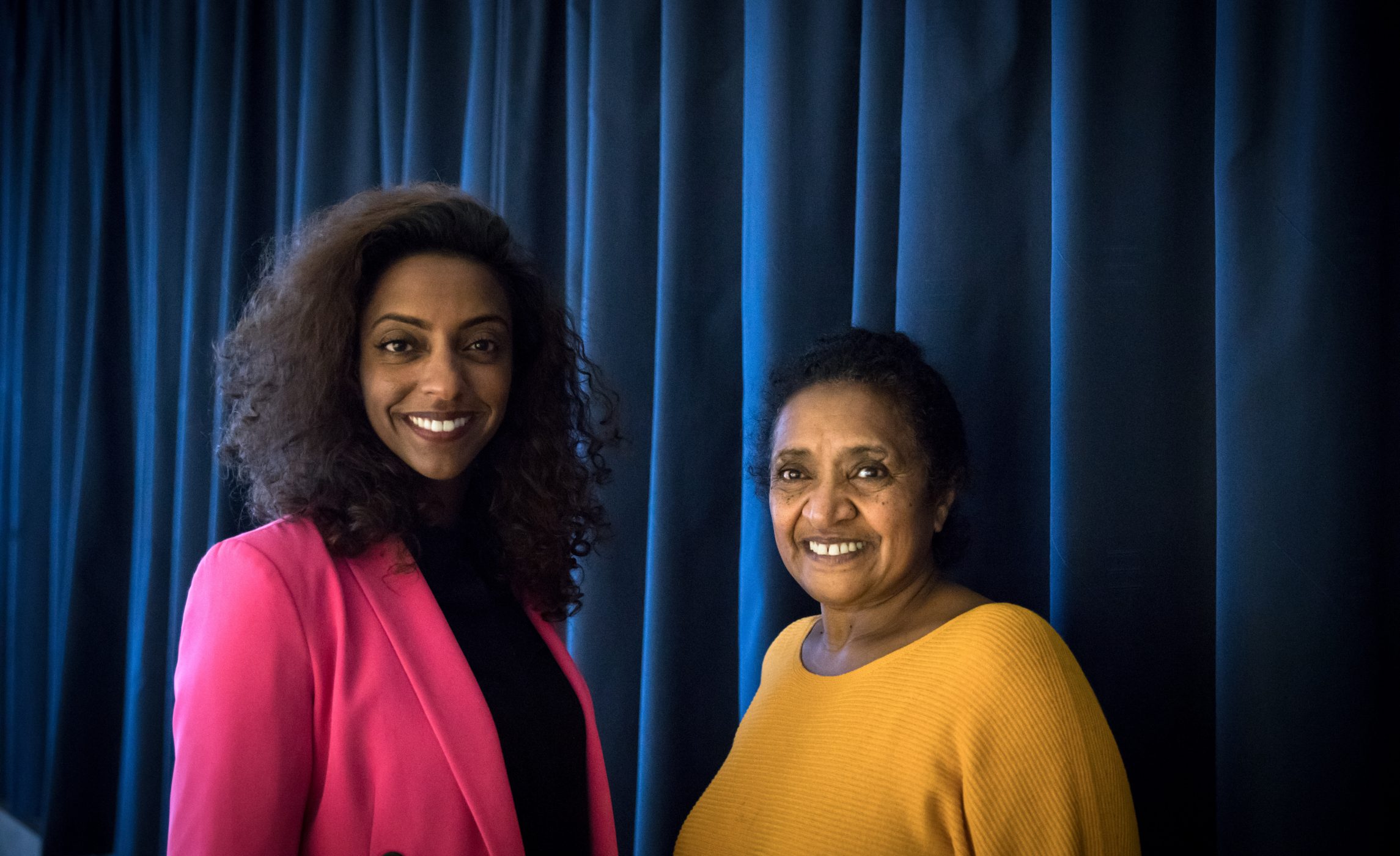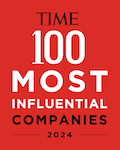PRESS RELEASE: Major Dutch companies on track to fulfill commitments to support refugees

Amsterdam, April 8th 2021 – Two years after announcing a series of ambitious commitments to integrate refugees in the Netherlands and abroad, 16 companies in the Netherlands – including ManpowerGroup, Philips, and Rabobank – today reported back on their progress at an online event hosted by the Tent Partnership for Refugees.
Despite the economic and health challenges resulting from the Covid-19 pandemic, the majority of companies are on track to meet or have already surpassed their commitment goals in support of refugees.
Hélène van Melle, Lead for Europe at the Tent Partnership for Refugees, said: “The Dutch business community demonstrated great leadership two years ago in its show of support for refugees. I am thrilled to see that these companies have lived up to their promises, even during times of crisis. Ultimately, supporting refugees is good for refugees, good for society, and good for business.”
Rabobank, one of the co-hosts of the 2019 Dutch Business Summit on Refugees — where the 16 companies made their public commitments — has made good headway with its refugee hiring efforts. Starting from scratch, the company committed resources to refugee hiring, and has already met its commitment of hiring 60 refugees by the end of the year in a range of positions, including IT software engineers and financial controllers.
Wiebe Draijer, CEO of Rabobank, commented: “We’ve had a very positive experience hiring refugees at Rabobank. They bring diversity of thought, resilience, and a great work ethic — and make us stronger as a company. Hiring refugees is something we will continue to do, and want to encourage our clients to start thinking about, too.”
ManpowerGroup, a global organization that provides workforce solutions, has also met its target of connecting more than 250 refugees to sustainable employment in the Netherlands alone. Mona, a refugee from Iran, is now working as a management trainee at the company. “ManpowerGroup has been a great employer, and has really helped me grow personally and professionally,” she said. “My traineeship coach and HR department have been incredibly supportive, and have provided me with additional internal and external coaching when I needed it. The general manager, Jeroen Zwinkels, who is also my mentor, always gives me constructive feedback and motivates me to develop myself so I can reach my full potential.”
More companies have stepped up since 2019 in support of refugees in the Netherlands – including EY, who piloted a program to mentor refugee women; Microsoft, who kicked off a program to train refugees in their Azure software and help them find jobs with clients; as well as dairy company FrieslandCampina and European grid operator TenneT, which have started hiring refugees in the Netherlands.
Manon Van Beek, CEO of TenneT, said: “Fostering an inclusive culture enhances TenneT’s performance and helps us grow as a company. For us, an inclusive culture means reaching out to groups that are less integrated in society. This approach is a win-win for both TenneT and for vulnerable groups, like refugees: in the coming years, TenneT will be looking for hundreds of new employees to help us shape the energy transition, the biggest challenge since the Delta Works. Only if we bring in a broader and more diverse group of people will we be able to find all the talent we need.”
The Tent Partnership for Refugees will co-host the Second Dutch Business Summit for Refugees in 2022, alongside ABN AMRO, FrieslandCampina, Randstad, and TenneT, where companies will announce new commitments in support of refugees.
ENDS
OVERVIEW OF 2019 COMMITMENT UPDATES (for the original list of commitments, please click here):
- ABN AMRO is well on track to meet its target of hiring 80 refugees, although it may take longer than the original three-year timeframe due to the pandemic. Currently, 45 refugees have been given permanent jobs at ABN AMRO in different departments, and have been provided with extensive coaching. Despite an internal restructure, ABN AMRO is committed to continue hiring refugees and maintaining the Reboot program.
- Accenture will meet its target of hiring 100 refugees by 2025. Hiring 20 refugees per year was difficult in 2020, due to a hiring freeze related to Covid-19. However, Accenture has surpassed other commitment targets — it has provided refugee mentorship programs to more than 1,100 refugees since 2019, as well as five coding classes.
- Arcadis is on track to meet its target to offer employment opportunities to 45 refugees in the Netherlands, the UK, Germany, Italy and France. In the Netherlands, for example, Arcadis has offered refugees the opportunity to attend a learning module on engineering and soft skills. Arcadis is exploring expanding the program in other countries.
- Asito has surpassed its commitment target, and has hired 95 refugees since 2019 versus its stated goal of 50. Asito has implemented a hiring and training program for Eritrean refugees that it plans to replicate in multiple cities. Despite Covid-19, which has hit the company hard, Asito continues to hire refugees and to raise awareness among its clients about the importance of providing work opportunities for refugees.
- Dura Vermeer has met its target of training at least 45 refugees and placing them in jobs. Hiring refugees is now embedded in the company’s recruitment process. Dura Vermeer continues to collaborate with the Hogeschool Rotterdam and UAF to encourage its suppliers and clients to hire refugees.
- As it remains extremely difficult for dentists educated outside of Europe to take the dental exam in the Netherlands, Dental Care Professionals could not meet its target of finding 60 refugee dentists positions in the Netherlands. However, DCP has helped 15 refugee dentists find positions in dental clinics so they can get relevant work experience. In addition, the company has built up a database of Syrian refugee dentists, and has increased awareness of the availability of refugee dentists and the challenges they face.
- The hospitality sector has been heavily impacted by Covid-19 and, globally, Hilton faced significant operational challenges given restrictions placed on hospitality. Hilton’s project in the Netherlands has been put on hold, despite a great start in collaboration with the Dutch Refugee Council. This project is part of Hilton’s worldwide effort that has impacted thousands of refugees worldwide through volunteering, training, employment, and procurement practices. The company expects to continue its projects in the Netherlands as soon as the situation allows.
- HP and its partners have successfully piloted the HP School Cloud, a new education technology solution, in several schools in urban and rural Uganda. Covid-19 has limited the opportunity to scale the pilot to other schools, so HP has adjusted its focus to continue to support the education of both local and refugee populations in the region, including by offering HP LIFE, a free learning platform.
- In Turkey, ING funded access to finance training and mentorship for 100 refugees. However, due to local circumstances, ING had to stop the program earlier than expected. ING’s NGO project partner in Turkey recently received an EU subsidy to continue the project and work towards its original goals. ING continues to be committed to supporting refugees, and has re-focused its efforts on the Netherlands. Working as part of a private-public partnership, ING has contributed to a program to help refugees pass their citizenship exam and help them to secure jobs.
- ManpowerGroup has met its target of connecting more than 250 refugees to sustainable employment in the Netherlands by 2020. ManpowerGroup has also successfully expanded its commitment to other countries, and has started employment initiatives in Sweden, Germany, the U.K., and Colombia. ManpowerGroup will continue its work to increase awareness about sustainable employment opportunities for refugees among its clients around the world.
- Philips is on track to meet its hiring target. By the end of 2020 it had hired 40 refugees in the Netherlands, Germany, and Turkey. Philips has organized awareness workshops and soft skills training for refugees in the U.K., Germany, and Panama. The company is exploring expanding its hiring and mentoring program to Brazil, Panama, Costa Rica, and the U.S.
- The Philips Foundation has changed the scope of its commitment. The initial project to set up a field hospital in Al-Hol refugee camp in Syria has been canceled due to political reasons. Three alternative projects that provide access to healthcare have been put in place instead: 1) Deploying a mobile clinic to provide kidney dialysis treatment to vulnerable patients in Northern Syria. 2) Deploying a mobile medical clinic following the outbreak of Covid-19 and the devastating fire in Moria, Greece 3) Supporting primary mobile health care services for migrants and local communities from Venezuela. In addition, Philips Foundation is funding several refugee-supporting organizations. As an example, during the Covid-19 pandemic, the Philips Foundation provided an initial loan to the Refugee Company to help it start a social enterprise – De Mondmaskerfabriek – that manufactures certified face masks and provides employment to newcomers in the Netherlands.
- Rabobank has met its target of hiring 60 refugees by the end of 2021. Rabobank will continue to hire refugees for open positions at the bank and will explore ways to help prepare refugees for the labor market through training and coaching, including its clients in these efforts.
- Randstad has surpassed its commitment target. Since 2019 it has helped 6,000 refugees in various European countries integrate into the labor market through mentoring and training. This is 5,000 above its initial target. Randstad has successfully expanded its commitment to explore opportunities in countries like Canada, Brazil, and Argentina, and continues to explore opportunities in other markets.
- Shell is on track to meet its target to empower displaced people and their host communities through access to more and cleaner energy choices in sub-saharan Africa. Shell has published a report about collaborative approaches to providing energy in displacement. Shell is also working on pilot projects with partners from humanitarian and the private renewable energy sector to provide reliable and clean energy access to refugees in Ethiopia and internally displaced people in Mozambique.
- Signify Foundation has met its target of improving access to energy and lighting for refugees and asylum seekers in Rhino Camp Uganda. Thanks to Signify’s provision of solar lighting, health centers, essential service providers, and communal spaces in and around Rhino Camp are able to function after sunset, benefitting more than 80,000 refugees and asylum seekers. Furthermore, 22 community members, including young people and women, have been trained on lighting operations and maintenance.
- Unilever has surpassed its commitment target, reaching almost 30,000 Syrian refugees in Lebanon with hygiene promotion materials and hygiene products. In addition, in response to Covid-19, Unilever has supported UNHCR with one of the largest in-kind donations in UNHCR’s history to help ensure the health and safety of refugees during the pandemic, donating more than 30 million bars of soap.
ENDS
Contact for press: Omnicom Public Relations Group
- Joost Reijnierse: [email protected] ,+31 (0)6 12 86 57 62
- Nathalie Schuijlenburg: [email protected], +31 (0)6 41 77 23 61
About the Tent Partnership for Refugees
With more and more refugees displaced for longer periods of time, businesses have a critical role to play in helping refugees integrate economically in their new host communities. The Tent Partnership for Refugees mobilizes the global business community to improve the lives and livelihoods of 30 million refugees who have been forcibly displaced from their home countries. Founded by Chobani’s founder and CEO Hamdi Ulukaya in 2016, we are a network of over 140 major companies committed to including refugees. Tent believes that companies can most sustainably support refugees by leveraging their core business operations – by engaging refugees as potential employees, entrepreneurs and consumers. Find out more at www.tent.org
 Tent Named to TIME100 Most Influential Companies List
Tent Named to TIME100 Most Influential Companies List